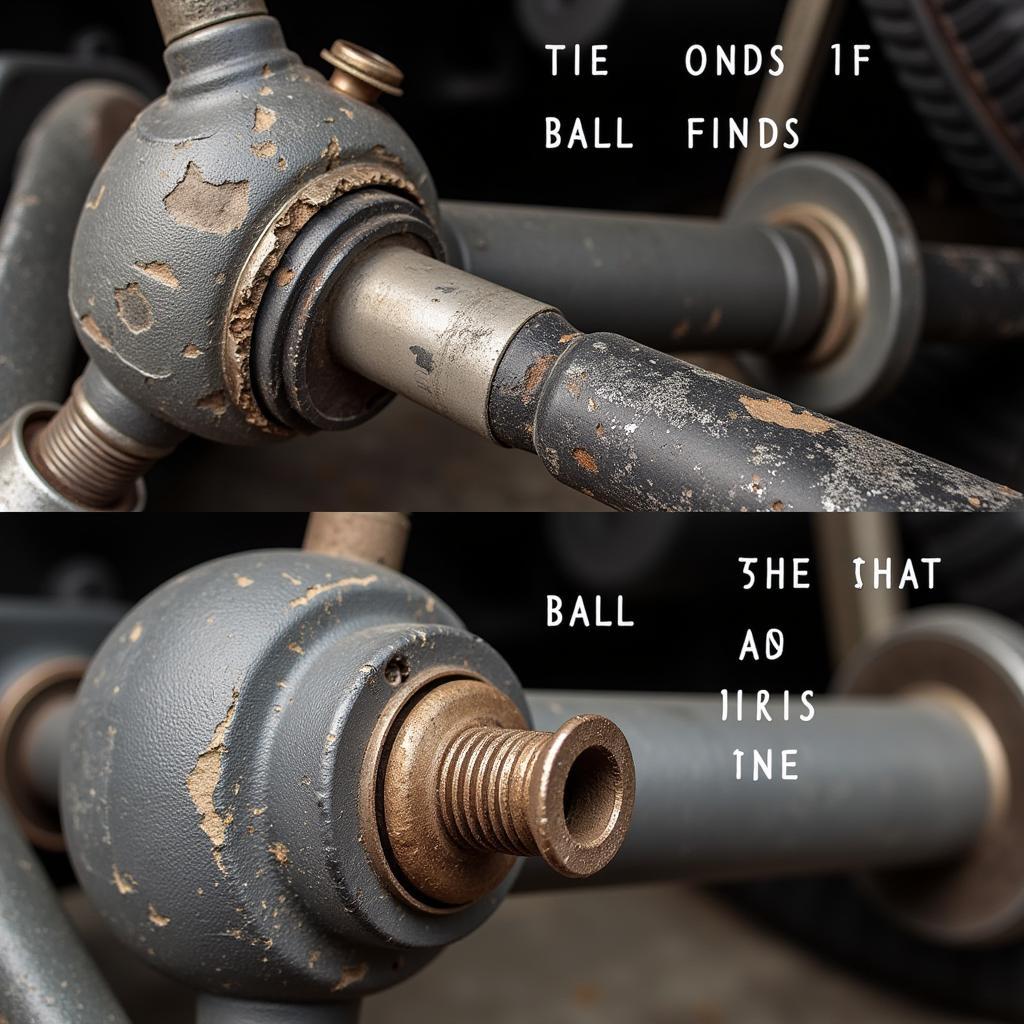Experiencing vibrations in your steering wheel can be unsettling and potentially dangerous. This shaking, whether subtle or pronounced, signals an underlying issue that needs attention. Understanding the causes of a Car Steering Vibration Problem is the first step towards fixing it and ensuring a smooth, safe driving experience.
A car’s steering system is a complex network of components, and many factors can contribute to vibrations. From unbalanced tires to worn suspension parts, the source of the problem can be difficult to pinpoint without proper diagnosis. This article delves into the common culprits behind car steering vibration problems, providing you with the knowledge to identify, diagnose, and resolve them. After reading through this guide, you’ll be better equipped to discuss the issue with a mechanic or even tackle some repairs yourself. Just after the next section, we’ll discuss common causes of steering wheel vibration. Problems with your suspension can often be the culprit, and you can learn more about them in our article covering car suspension problems after accident.
Common Causes of Steering Wheel Vibration
Several factors can cause your steering wheel to vibrate. Identifying the specific cause is crucial for effective repair. Some of the most frequent culprits include:
-
Unbalanced or Damaged Tires: Perhaps the most common cause, unbalanced tires can lead to noticeable vibrations, especially at higher speeds. Damaged tires, such as those with bulges or uneven wear, can also contribute to this problem.
-
Wheel Alignment Issues: Improper wheel alignment can disrupt the balance and stability of your vehicle, causing vibrations in the steering wheel. This is often accompanied by uneven tire wear.
-
Worn-out Steering and Suspension Components: Worn tie rod ends, ball joints, or other steering components can introduce play into the system, resulting in vibrations, especially when turning or driving over uneven surfaces. Issues with the suspension can also be costly; for more info, check out car suspension problems cost uk.
-
Brake Problems: Warped brake rotors are another common cause of steering wheel vibration, especially when braking at higher speeds. Sticking brake calipers can also contribute to vibrations.
-
Loose or Damaged Wheels: Loose lug nuts or damaged wheels, such as bent rims, can cause vibrations that transmit through the steering column.
Diagnosing the Problem
Pinpointing the source of steering wheel vibration requires a systematic approach. Start by checking the tires for any visible damage, uneven wear, or bulges. Next, inspect the wheels for any signs of damage or looseness. If you suspect a brake problem, check the rotors for warping.
 Worn steering components causing vibration
Worn steering components causing vibration
For a more thorough diagnosis, take your vehicle to a qualified mechanic. They have the expertise and equipment to perform a comprehensive inspection, including checking wheel alignment, balancing tires, and inspecting steering and suspension components. Sometimes, seemingly unrelated issues can be the root of the problem. For instance, you might find it helpful to learn more about Nissan 2008 rogue shift problems.
Solutions and Repairs
The solution to your steering wheel vibration problem depends on the underlying cause.
-
Tire Balancing and Rotation: Regularly balancing and rotating your tires can prevent many vibration issues.
-
Wheel Alignment: If the problem stems from misaligned wheels, a professional alignment service can restore proper geometry and eliminate vibrations.
-
Steering and Suspension Repair: Worn or damaged steering and suspension components, such as tie rod ends or ball joints, should be replaced promptly. For more information on common car problems, read different car problems. You can also learn more about car ball joint problems in our dedicated article.
-
Brake Rotor Replacement or Resurfacing: Warped brake rotors typically require replacement, but in some cases, they can be resurfaced if the warping is minimal.
-
Wheel Repair or Replacement: Damaged wheels should be repaired or replaced to ensure safe and stable driving.
Conclusion
Addressing a car steering vibration problem is essential for both safety and driving comfort. By understanding the common causes, taking a systematic approach to diagnosis, and implementing the appropriate repairs, you can restore the smooth and confident handling of your vehicle. Don’t hesitate to contact a qualified mechanic if you’re unsure about the cause or the necessary repairs. For expert advice and assistance with your car steering vibration problem, feel free to reach out to AutoTipPro at +1 (641) 206-8880. Our office is located at 500 N St Mary’s St, San Antonio, TX 78205, United States.






Leave a Reply